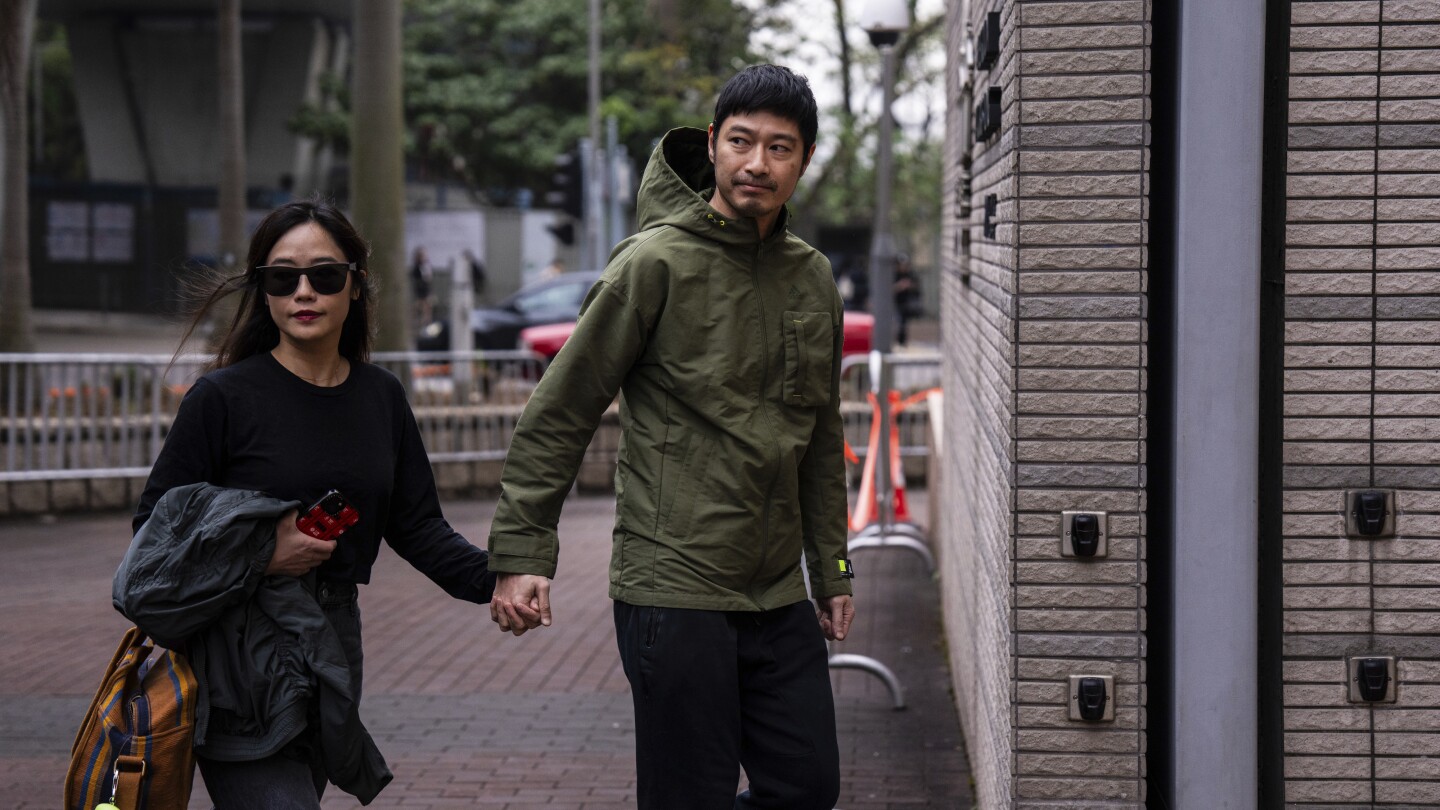HONG KONG (AP) — A Hong Kong court on Thursday convicted four people for rioting over the storming of the city’s legislative council building at the height of the anti-government protests more than four years ago.
The break-in on July 1 in 2019 — the 22nd anniversary of the former British colony’s return to China – was one of the most chaotic episodes of the massive protests sparked by a now-withdrawn extradition bill.
Hundreds of protesters swarmed into the legislature that night, defacing pictures and smashing furniture. Some spray-painted slogans in the chamber and painted over the territory’s emblem on a wall before vacating the site as riot police cleared surrounding streets with tear gas and then moved inside. The legislature eventually spent about 36 million Hong Kong dollars (US$4.6 million) on repairing the damages, the court heard earlier.
Six defendants, including actor Gregory Wong and two reporters Wong Ka-ho and Ma Kai-chung, last year pleaded not guilty to rioting.
On Thursday, judge Li Chi-ho found four of the six defendants, including Gregory Wong, guilty of rioting. Wong Ka-ho and Ma were acquitted of the rioting charge but were convicted for unlawful entry into the legislature.
Li said in his written judgment that there was a directive to ask all people to leave. “I can’t see how the defense can distort the meaning of the word and exclude journalists from ‘everyone’,” he said.
He added it was a “wrong idea” for Wong Ka-ho to think that reporters can stay there to document the developments.
During the trial, Gregory Wong said he was at the scene to deliver chargers to a reporter. But the judge challenged his arguments, saying he had hugged a protester before leaving the chamber as an expression of support.
“His intention of entering the legislature is obvious, it is to join this riot,” he said.
Eight others, including activists Ventus Lau, Owen Chow and former student leader Althea Suen, were also charged for rioting in the same case and previously entered a guilty plea.
The 2019 protests were sparked by a proposed extradition law that would have allowed Hong Kong criminal suspects to be sent to the mainland for trial. The government withdrew the bill, but the protesters widened their demands to include direct elections for the city’s leaders and police accountability.
The social movement was the biggest challenge against the Hong Kong government since the city’s handover in 1997 and triggered Beijing to impose a national security law in 2020 to quell it. Following the introduction of the security law, many of the city’s leading activists were arrested, silenced or forced into self-exile.
More than 10,200 people were arrested in connection to the protests for various crimes, such as rioting and participating in an unauthorized assembly.

